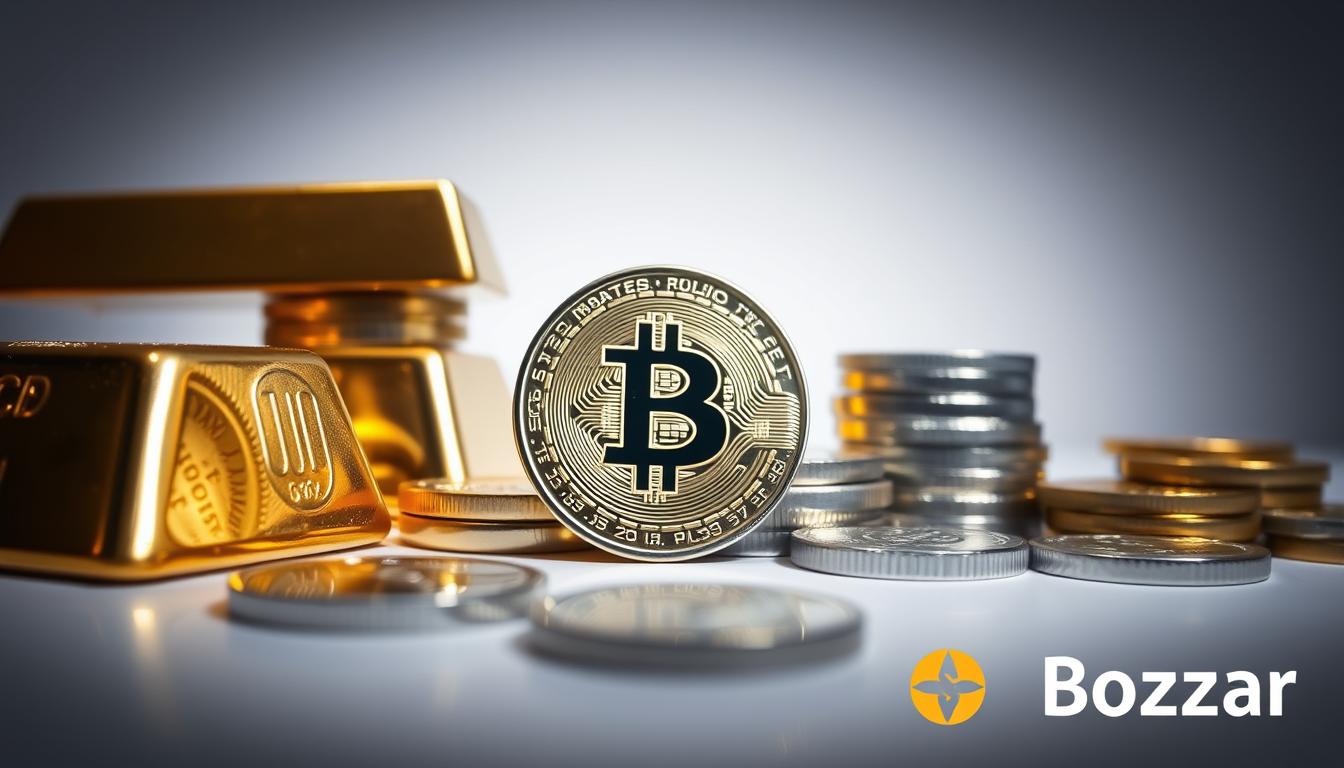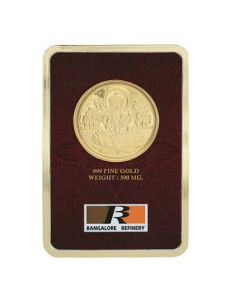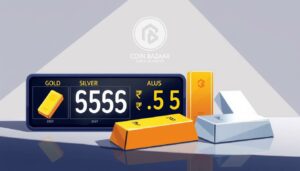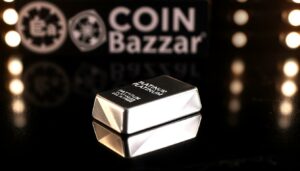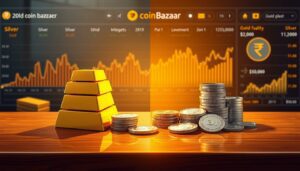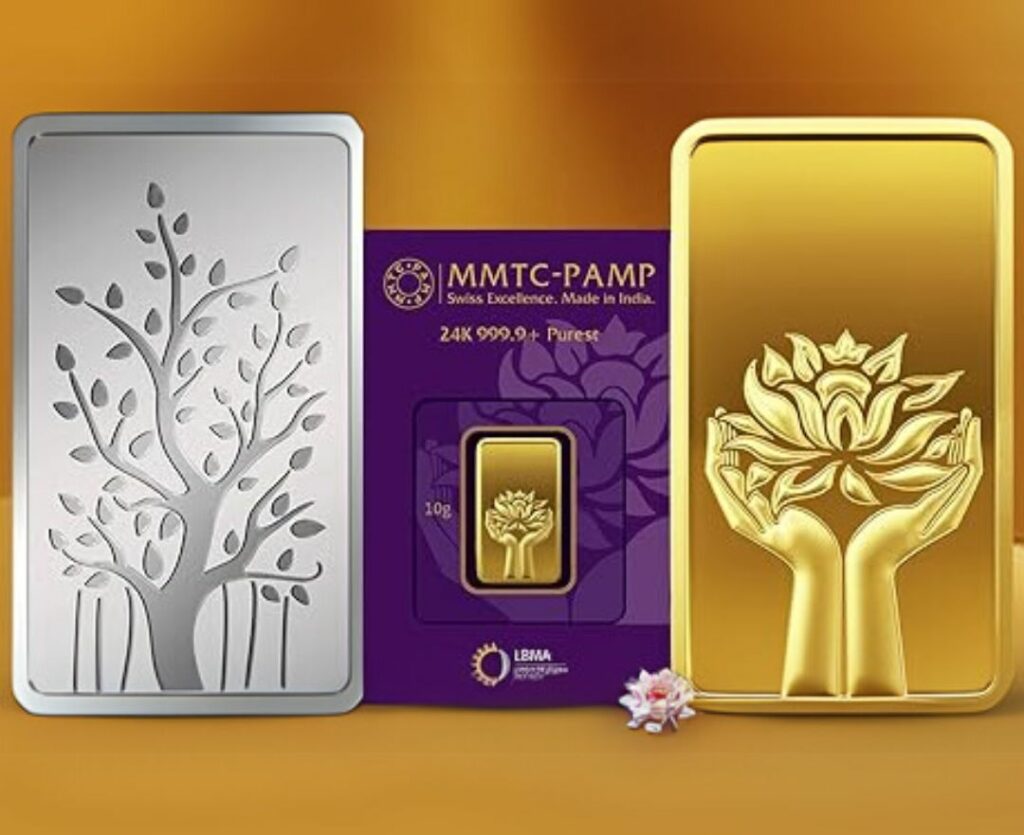Exclusive Deals & Trending Items
In the world’s economy, people look for safe-haven assets to keep their money safe. The fight between gold and digital assets like Bitcoin is getting bigger. You might be thinking about the good and bad of each.
It’s important to know the details of precious metals comparison and digital assets. Choosing between gold and Bitcoin can really change your investment in India.
Key Takeaways
- Safe-haven assets are crucial in a volatile economy.
- Gold and Bitcoin are leading contenders in the safe-haven debate.
- Understanding the differences between traditional and digital assets is key.
- Investment choices can significantly impact your portfolio.
- Consider your options carefully when deciding between gold and Bitcoin.
The Search for Safe Havens in Uncertain Times
In times of economic uncertainty, investors look for safe havens to protect their assets. The idea of a safe haven is key when markets are shaky and financial stability is at risk.
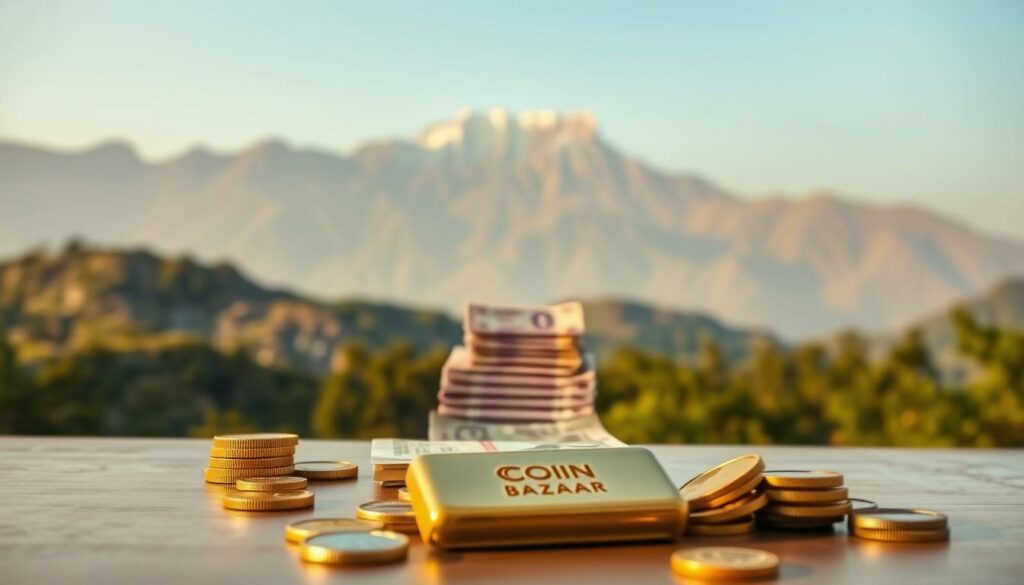

What Makes an Asset a “Safe Haven”?
A safe-haven asset keeps its value or even grows when the economy is stressed. Gold is often seen as a safe haven because of its intrinsic value and rare supply. To be a safe haven, an asset must not move with other assets when they fall, acting as a shield against big losses.
Why Indian Investors Need Portfolio Protection
Indian investors, like others worldwide, must protect their portfolios from economic risks. With inflation and market ups and downs, adding safe-haven assets is wise. Assets like gold, which acts as an inflation hedge, can keep investment value steady over time.
By knowing what makes an asset a safe haven and adding these to their portfolios, Indian investors can handle uncertain economic times better.
Gold: The Traditional Store of Value
Gold has been a symbol of financial security for centuries. It’s valued for its durability and worth. Its special status comes from its long history, cultural importance, and unique physical traits.
5,000 Years of Monetary History
Gold has been a monetary asset for over 5,000 years. Ancient civilizations used it for coins and wealth storage. Its value has been universal, making it a symbol of prosperity. Knowing its history helps investors see why gold is still popular.
Gold’s Significance in Indian Economy and Culture
In India, gold is more than just a metal; it’s part of the culture and economy. It’s used in jewelry, coins, and as gifts during festivals and weddings. This cultural tie boosts its demand and value. For Indian investors, gold is a tangible asset deeply rooted in tradition.
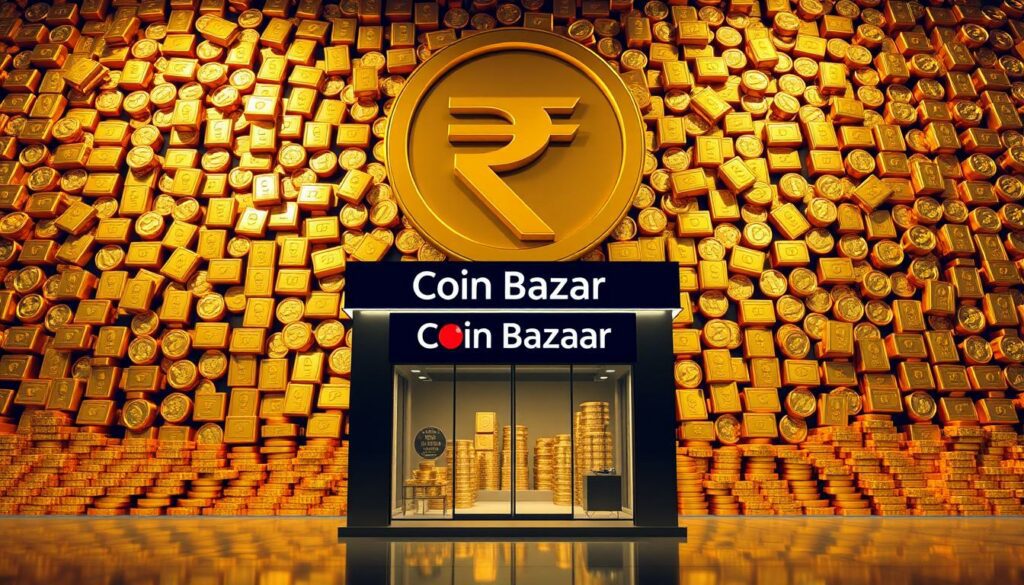

Physical Properties and Practical Applications
Gold’s durability, malleability, and resistance to corrosion make it versatile. It’s used in jewelry, electronics, dentistry, and as a store of value. For investors, gold is a reliable alternative asset that can be easily bought, sold, and stored. It offers a hedge against economic uncertainties.
Gold stands out when compared to other precious metals. Its unique physical properties and cultural significance make it key for a diversified portfolio. This is especially true when looking at precious metals comparison.
Bitcoin: The Digital Contender
Bitcoin is a leading digital currency that challenges old ideas about safe investments. It’s important to know about Bitcoin’s start, its tech, and its growing use in India.
The Birth and Evolution of Cryptocurrency
Bitcoin, the first digital currency, was made in 2009 by Satoshi Nakamoto. This started a new time for money transactions, using a system without a central bank. Bitcoin has changed a lot, with its value and fame going up and down.
Blockchain Technology Fundamentals
Bitcoin’s core is blockchain technology, a shared ledger for transactions. It makes transactions open, safe, and unchangeable. Blockchain is key to cryptocurrencies and has many uses beyond digital money.
Bitcoin’s Growing Presence in India
Bitcoin is becoming more popular in India, with more people investing in it. India’s tech-smart people and love for new financial systems help Bitcoin grow. As rules change, Bitcoin’s appeal in India is likely to grow.
Thinking about adding Bitcoin to your investments? Knowing about Bitcoin and its role in finance is key. With its special features and growing acceptance, Bitcoin is an interesting choice instead of gold.
Gold vs Bitcoin: Key Differences and Similarities
When looking at investment options, it’s key to know the differences and similarities between gold and Bitcoin. These two assets are important for diversifying your financial portfolio. Knowing about them can guide your investment choices.
Both gold and Bitcoin are seen as safe-haven assets during economic uncertainty. They share some traits but are quite different in many ways.
Scarcity and Supply Mechanics
Gold and Bitcoin are both scarce. Gold’s supply is limited by how much can be mined. Bitcoin’s supply is capped at 21 million units, making it a digital scarce asset. A financial analyst noted,
“The scarcity of Bitcoin, coupled with its decentralized nature, makes it an attractive option for investors looking for an alternative to traditional safe-haven assets like gold.”
Portability and Divisibility
Gold and Bitcoin differ a lot in portability and divisibility. Gold is a physical asset that’s hard to move and store. Bitcoin, being digital, is easier to move and doesn’t need intermediaries. It’s also more divisible, making it good for small transactions.
Divisibility is a big plus for Bitcoin, especially for small transactions and flexible investment strategies.
Recognition and Acceptance in Indian Markets
In India, gold is well-known and accepted, being part of cultural practices and seen as a traditional value. Bitcoin is gaining popularity but still faces acceptance issues. Yet, young Indians are showing more interest in cryptocurrency, which could change things.
When thinking about diversifying your investments, knowing the differences between gold and Bitcoin is crucial. Both have their own benefits and drawbacks. Their place in your portfolio depends on your financial goals and how much risk you’re willing to take.
Historical Performance Analysis
It’s key to know how gold and Bitcoin have done in past economic troubles. Both are seen as safe choices, but they’ve acted differently in crises.
Gold’s Price History During Economic Crises
Gold has always been a store of value in tough times. Its performance in big economic events is especially interesting.
Performance During the 2008 Financial Crisis
At first, gold prices fell in 2008. But then, they soared as people looked for safe places to put their money. By the end of 2008, gold had jumped up a lot, showing it’s a reliable asset in crises.
Performance During the COVID-19 Pandemic
Gold hit a record high of about $2,070 per ounce during the COVID-19 pandemic. It stayed strong when markets fell apart. This made gold’s reputation as a safe-haven asset even stronger.
Bitcoin’s Behavior in Market Downturns
Bitcoin, called “digital gold,” has been studied for its crisis performance.
Bitcoin’s Response to Global Uncertainty
Bitcoin’s reaction to global uncertainty has been mixed. It has shown promise as an inflation hedge. But its ups and downs have made people question its reliability as a safe haven.
Correlation with Traditional Markets
Research shows Bitcoin’s link to traditional markets has changed over time. At first, it was seen as a way to diversify. But in some downturns, it has moved in sync with traditional assets. This has made its status as a safe haven uncertain.
| Asset | 2008 Financial Crisis | COVID-19 Pandemic |
|---|---|---|
| Gold | Initially dropped, then surged | Reached all-time high |
| Bitcoin | Not yet established | High volatility, mixed performance |
Volatility Comparison
When looking at safe haven assets, knowing their volatility is key. You must see how their value changes over time. This helps you make smart choices.
The volatility of an asset shows how much its value can swing. Gold and Bitcoin are both seen as safe havens. They are also alternative assets.
Gold’s Price Stability Metrics
Gold is often seen as a stable value. Its price doesn’t change much because of its limited supply and historical significance. Here are some important points about gold’s stability:
- Average annual price volatility: around 15%
- Historical price range: pretty stable, with some big jumps
- Correlation with other assets: usually goes down when stocks do
Bitcoin’s Price Swings and Volatility Patterns
Bitcoin, however, is known for big price changes. Its ups and downs come from market sentiment, regulatory news, and adoption rates. Here are some key points about Bitcoin’s volatility:
- High average annual price volatility: often over 50%
- Fast price changes: can go up or down quickly
- Reacts to global economic trends and how people feel about crypto
It’s important to understand these volatility patterns. This helps you manage risks when investing in gold and Bitcoin. Think about their volatilities and your risk level when diversifying your portfolio.
Inflation Hedging Capabilities
Inflation can make your money worth less. It’s important to find good hedges. Gold and Bitcoin are seen as potential stores of value during inflation.
Gold’s Track Record Against Indian Inflation
Gold is known for fighting inflation. In India, it’s not just a hedge but also a cultural symbol. When inflation is high, gold prices often go up, keeping investors’ money power intact.
For example, in India’s high inflation times, gold prices have moved with inflation rates.
| Year | Indian Inflation Rate | Gold Price (INR) |
|---|---|---|
| 2010 | 12.07% | 18,467 |
| 2011 | 8.87% | 26,230 |
| 2012 | 9.31% | 30,610 |
Bitcoin’s Potential as an Inflation Hedge for Rupee
Bitcoin is seen as a digital gold by some. It has a limited supply and is not controlled by any government. Its short history and volatility make it a riskier choice. Yet, some believe it could be a good store of value against inflation.
But, its role as an inflation hedge for the Indian rupee is still being studied and discussed.
Regulatory Landscape in India
Investing in India means understanding the rules for gold and cryptocurrencies. These rules change, affecting how you can invest.
Gold Regulations and Taxation
Gold investments in India face many rules and taxes. It’s key for investors to know these.
Import Duties and GST on Gold
Import duties on gold raise its price in India. Also, Goods and Services Tax (GST) is charged on gold deals. For example, a 3% GST adds to the investment cost.
Gold Monetization Schemes
The Indian government has Gold Monetization Schemes. They let investors earn interest on gold, making it more appealing.
Cryptocurrency Legal Status and Policy Developments
Cryptocurrency laws in India are changing. Investors should keep up with new rules.
RBI’s Position on Digital Assets
The Reserve Bank of India (RBI) is careful with cryptocurrencies. Knowing the RBI’s view helps investors understand risks and chances.
Recent Legislative Developments
New laws, like the Cryptocurrency and Regulation of Official Digital Currency Bill, matter for investors. Keeping up with these can guide investment choices.
In conclusion, the rules for gold and cryptocurrencies in India are complex and always changing. Investors need to stay current with regulations and policy updates to maximize their investments.
Accessibility for Indian Investors
Indian investors now have more ways to diversify their portfolios with gold and Bitcoin. These assets are more accessible than before, offering many investment options.
How to Invest in Gold in India
Indian investors can choose from physical gold and digital gold. Physical gold is a traditional favorite, available as jewelry, coins, and bars.
Physical Gold: Jewelry, Coins, and Bars
Buying physical gold means getting jewelry, coins, or bars from trusted dealers or banks. But, remember to check the making charges and gold purity.
Digital Gold and Gold ETFs
Digital gold and Gold ETFs are modern, convenient gold investment options. Digital gold is stored online, and Gold ETFs are backed by real gold. They save on storage costs and are often cheaper.
How to Buy and Store Bitcoin in India
Buying Bitcoin in India is easy through cryptocurrency exchanges and digital wallets. Indian cryptocurrency exchanges are where you can buy and sell Bitcoin.
Indian Cryptocurrency Exchanges
India has many cryptocurrency exchanges. They offer services for buying, selling, and trading Bitcoin. It’s important to pick a secure and reputable exchange.
Wallet Options for Indian Users
After buying Bitcoin, you need a safe digital wallet. Wallet options include online wallets from exchanges and hardware wallets for extra security.
KYC and Compliance Requirements
Indian investors must follow Know Your Customer (KYC) rules when using exchanges. This means verifying your identity and address to meet legal standards.
Knowing how to invest in gold and Bitcoin helps Indian investors make smart choices. These choices should match their financial goals and risk levels.
Security Considerations
When thinking about investing in gold or Bitcoin, knowing the security aspects is key. Both gold and Bitcoin have their own security needs. It’s important to understand these to keep your investments safe.
Protecting Physical Gold Assets in India
For physical gold, keeping it safe is the main concern. You can store it in a bank locker or a secure vault. Some prefer home safes, but they carry risks like theft or damage.
Cryptocurrency Security Best Practices
Bitcoin security means using safe wallets and following best practices. Choose a trusted cryptocurrency exchange and use two-factor authentication. Keeping your private keys safe is also critical.
Insurance Options for Both Assets
Both gold and Bitcoin can be insured against loss or theft. For gold, insurance covers loss or damage. For Bitcoin, some exchanges and custodians offer theft or loss insurance. Knowing these options helps you make better investment choices.
By taking the right security steps, you can safeguard your gold and Bitcoin investments. This ensures they remain a solid store of value for your wealth.
Cultural Significance in India
India’s rich culture deeply values gold. This tradition is now growing alongside an interest in digital assets like Bitcoin.
Gold’s Traditional Role
Gold is key in Indian society, especially at festivals and weddings. It’s more than a precious metal; it’s a sign of wealth and luck. Gold jewelry and ornaments are treasured, often kept in families for years.
Gold’s role is clear in Indian festivals. It’s given as gifts or used in rituals.
Growing Cryptocurrency Culture
Young Indians are getting into cryptocurrencies, showing a shift to digital assets. This interest is sparked by the chance for big returns and the appeal of a new financial system.
- More people are learning about and using cryptocurrencies.
- Crypto communities and forums are growing.
- Digital currencies are becoming more accepted in finance.
This trend doesn’t replace gold but adds to a diversified investment portfolio. It includes both physical and digital assets.
Portfolio Allocation Strategies for Indian Investors
As an Indian investor, you know about diversifying your portfolio. There are many investment options. It’s important to balance traditional assets like gold and digital assets like Bitcoin.
Adding gold and Bitcoin to your portfolio can help manage risk. This mix can make your portfolio stronger and more resilient.
Optimal Gold Allocation Percentages
Financial advisors often suggest a gold allocation of 5% to 15% of your portfolio. This depends on your risk level, goals, and market conditions.
- Conservative investors might choose a higher gold allocation.
- Aggressive investors might prefer a lower percentage.
Bitcoin Position Sizing Based on Risk Tolerance
Bitcoin allocation is more complex due to its volatility. Investors might allocate 1% to 5% of their portfolio to Bitcoin. This depends on their risk tolerance and investment time frame.
Before deciding on Bitcoin allocation, consider your risk tolerance and financial goals.
Balancing Traditional and Digital Assets in Your Portfolio
It’s important to balance gold and Bitcoin in your portfolio. Think about your financial goals, risk tolerance, and investment time frame. A mix of traditional and digital assets can protect against market ups and downs.
Diversifying your investments and using a balanced strategy can help you navigate financial markets better.
Tax Implications for Indian Investors
Taxes on gold and cryptocurrency in India are different. Knowing these differences helps you make smart investment choices. You need to think about the taxes when you invest.
Taxation on Gold Investments
Gold investments in India face capital gains tax. The tax rate varies based on the time you hold the gold.
Short-term vs. Long-term Capital Gains
Selling gold within three years is considered short-term. These gains are taxed based on your income tax slab. Long-term gains, however, are taxed at 20% after adjusting for inflation. It’s important to know this for tax planning.
Wealth Tax Considerations
Gold used to be taxed as wealth, but this tax was removed in 2015. Now, gold investments don’t face wealth tax in India. But, always check for any tax law changes.
Cryptocurrency Taxation in India
Cryptocurrency tax rules in India are still being shaped. Right now, it’s treated like any other capital asset.
Current Tax Rules for Digital Assets
Cryptocurrency gains are taxed like other capital assets. Short-term gains are taxed based on your income tax slab. Long-term gains are taxed at 20% with inflation adjustment.
Reporting Requirements
You must report cryptocurrency gains in your taxes. The Income Tax Department wants you to disclose these gains. Not doing so can lead to penalties.
Understanding these tax rules helps you invest wisely in gold and cryptocurrency. Always talk to a tax expert to follow the latest tax laws.
Future Outlook for Both Assets in the Indian Market
The future of gold and Bitcoin in India is shaped by many factors. These include economic conditions and new rules. Knowing these can help you make smart choices for your investments.
Gold Market Projections
Gold has always been valuable in India, tied to the country’s culture and economy. The gold market is seen growing, but it will face ups and downs. This is because of changes in the global economy and currency values.
Things like inflation, interest rates, and global stability will affect the gold market. With the world’s economy still uncertain, gold might stay a top choice for cautious investors.
Bitcoin Adoption and Price Predictions
Bitcoin is a newer investment in India, attracting the tech-smart younger crowd. As more Indians learn about digital assets and get clearer rules, Bitcoin’s use is expected to rise.
Predicting Bitcoin’s price is hard because it’s so unpredictable. Yet, experts think it could get more stable and possibly go up as more big investors join in. Watch for new rules and tech breakthroughs that could change Bitcoin’s price and use.
Conclusion: Making the Right Choice for Your Financial Goals
Investing in uncertain times can be tough. The debate over gold and Bitcoin as safe-haven assets is growing. Your choice depends on your financial goals and how much risk you can take.
Gold and Bitcoin have different qualities and histories. Gold is a traditional value, stable and valued in Indian culture. Bitcoin is a digital asset, promising high returns and being decentralized.
Before deciding, think about your goals, risk level, and how long you can wait. Spreading your investments across different types can reduce risks. Also, consider security, rules, and taxes.
Knowing the good and bad of gold and Bitcoin helps you make a smart plan. You might choose gold, Bitcoin, or both. Always stay updated and adjust to market changes.






